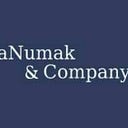Blockchain In Healthcare
According to HIPAA, there was at least one data breach of healthcare records per day in 2018. Between 2009 and 2018, more than 59 percent of the US population’s healthcare records leaked because of data breaches. Blockchain refers to a chain of data or transactions linked or chained together by cryptographic signatures known as a hash and are maintained in shared ledgers and backed by a network of connected processes known as nodes. Nodes keep a copy of the whole chain and are constantly updated and synced. While the underlying technology is well-known and tested, such as networking, hashes, and encryption, this technology is different from standard programming, networks, databases, and web interfaces.
In the age of data security, health companies should consider implementing blockchain technology. Blockchain is about securely exchanging data. With millions and billions of transactions each year, the healthcare industry is one of the largest in the world. Pharmaceuticals, treatments, immunizations, clinical trials, and cloud computing have seen complex and innovative advancements in the healthcare industry. Blockchain and healthcare are a perfect combination. Blockchain and healthcare complement one another by centralizing all stakeholder’s data in a single location that is easy to access and operate.
Benefits of blockchain in healthcare:-
- Inflexible: Once data is recorded in the blockchain, no one can edit it. It helps users demonstrate that their information is genuine and unaltered.
- Transmission of information effectively: Blockchain establishes a single source of truth to assure interoperability and accessibility, which supplies medical providers and insurance companies with up-to-date information. When one health institution seeks data on a patient from another, the data no longer has to travel hundreds of miles. anumak.ai
- Economical: Blockchain technology is one of the most advanced technologies accessible today. Blockchain in healthcare removes third parties, including banks, by allowing peer-to-peer transactions, cutting transaction costs.
- Clinical Investigation: Blockchain technology has the potential to be beneficial in medical research. The traceability of data produced throughout the clinical trial method is crucial for assessing the medical therapy proposed. Consumers’ IoT health gadgets are linked. Analysis of this nature offers findings, enabling improved medicine composition with the customer demands.
- Dispute Resolution: One thing that annoys the healthcare business is the time spent on claim settlements. Smart contracts are used in healthcare solutions to create the terms and conditions between the payer and the provider, which helps the parties to settle.
Some of the challenges faced by the healthcare industry while using blockchain technology are:-
- Geographical distribution: Medical guidelines fluctuate according to a geographical area.
- Lack of privacy: Blockchain technology contains all medical records, papers, photos, and lab reports. A single block can hold the most information possible. The total size of these files may easily exceed the storage capacity of existing blockchain technology, creating a quandary.
- Anonymous: There is currently no process to determine who owns and permits sharing healthcare data and who requires access.
- Expenditure: There is no reasonable estimate of the cost of implementing and maintaining blockchain technology in healthcare.
- Misconception: There is a misconception that the data stored in these blocks cannot be hacked and is safe to store.
Some of the examples where blockchain affects the healthcare system are:-
- Pharmaceutical Companies: Pharma industries can provide a selection of medical products and treatment regimens tailored based on the patient’s exact genomic data obtained in real-time on the Blockchain platform.
- Chemist: If drugstores have access to all data, blockchain in healthcare will make their tasks easier. Based on this information, they can successfully advise patients on how to take the medication.
- Healthcare professionals: All healthcare personnel, including physicians and nurses, have simple access to the patient’s medical information. When paired with real-time data from wearables on a patient’s health performance, healthcare providers can employ unique techniques to alert and educate patients about potential health hazards.
CONCLUSION
Combining old, outmoded healthcare organizations with new technology like blockchain may be difficult to fathom, yet its applications are much needed. With the growth of electronic medical data, the healthcare industry is continuously attempting to secure patient, hospital, insurance, and billing records. The goal of blockchain in healthcare is to eliminate the intermediary. It is about boosting the security of various healthcare transactional processes while removing bureaucracy and manual inefficiencies, improving quality of service, and democratizing patient data. Because it provides speed, availability, accessibility, and other benefits, blockchain is a good alternative for managing the volume of data generated by the healthcare industry.
For more information:
